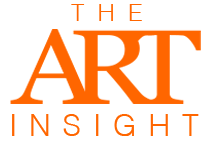Helena Kotnik, a graduate of Barcelona University and the Akademie der bildende Künste, Vienna, is a distinctive artist whose creations often evoke the notion of “psychological human landscapes.” Her paintings, characterized by their vibrant colors and somewhat naive style, serve as a commentary on contemporary society and its complexities. Influenced by a multitude of artists spanning various periods in art history, Kotnik’s work delves into the intricate web of human emotions and societal dynamics.

Recent accolades have spotlighted Kotnik’s talent, with her works being selected for display at The Other Art Fair Dallas, USA. Her art frequently delves into historical events, examining their reverberations through society.
Born in Barcelona, Spain, Kotnik’s artistic journey began at a young age, culminating in her pursuit of a Bachelor’s Degree in Fine Arts at Barcelona University. She further honed her craft at the renowned Akademie der bildende Künste in Vienna, earning a Master’s degree in Fine Arts. Kotnik’s education provided her with a rich tapestry of artistic influences and techniques, evident in her eclectic body of work.
Drawing inspiration from art luminaries like Picasso, van Gogh, and Kahlo, Kotnik’s paintings weave together elements from diverse artistic traditions. However, it’s her engagement with contemporary issues that truly sets her work apart. One of her pieces is a portrait of Vladimir Putin, which transcends mere depiction to offer a nuanced exploration of contemporary upheavals.
In Kotnik’s portrayal, Putin’s image becomes a lens through which viewers are invited to contemplate the complexities of our world. Through bold strokes and vivid colors, she prompts audiences to reassess their perceptions of figures who hold significant sway in politics and beyond. It’s this ability to provoke introspection that underscores the power of Kotnik’s art. By infusing her paintings with layers of meaning and symbolism, Kotnik challenges viewers to delve deeper into the nuances of contemporary society, inviting critical reflection on the interconnectedness of power, ideology, and human nature. In confronting the viewer with the enigmatic persona of Putin, Kotnik sparks dialogue about the role of leadership, the nature of authority, and the impact of individuals on the global stage. Through her art, she compels us to confront uncomfortable truths and grapple with the complexities of our shared reality, ultimately inspiring greater empathy, understanding, and engagement with the world around us.
Central to Kotnik’s oeuvre is her fascination with the human psyche, a theme she shares with the Austrian painter Egon Schiele. Like Schiele, Kotnik employs expressive lines and colors to delve into the depths of human emotion. Yet, amidst these influences, her work maintains a distinctive identity characterized by whimsical imagery and a vibrant palette.
Kotnik’s paintings serve as mirrors reflecting the multifaceted nature of our existence, inviting viewers to confront the complexities of contemporary life. Whether exploring historical events or probing the psyche of public figures, her art transcends mere aesthetics to offer profound insights into the human condition.
In a world inundated with noise, Helena Kotnik’s art stands as a beacon of introspection, beckoning us to pause, reflect, and navigate the intricate landscapes of our own humanity. Through her paintings, she reminds us of the power of art to illuminate, provoke, and ultimately, connect us to the world around us.
